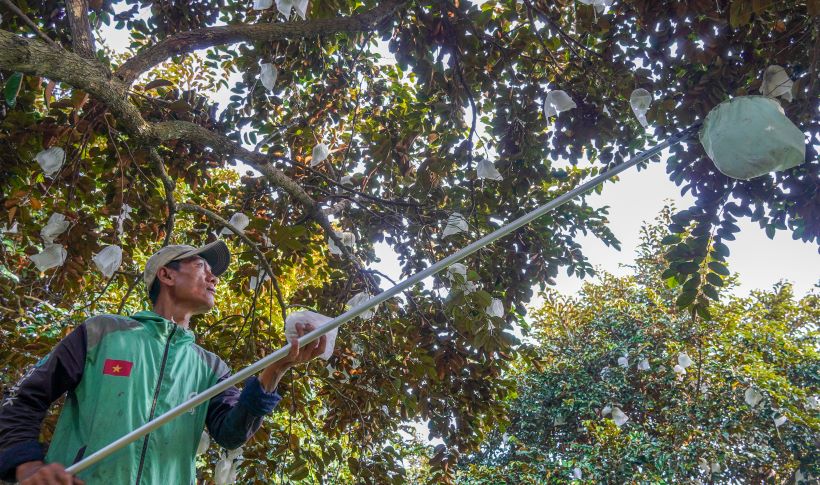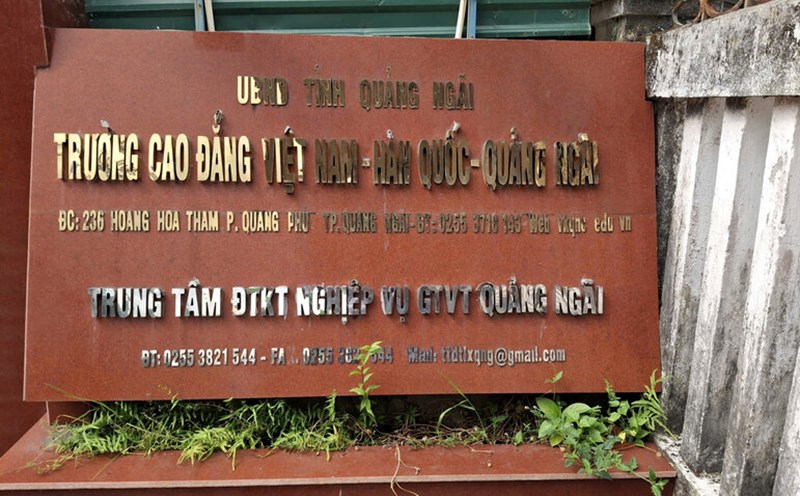After merging administrative boundaries, Can Tho City currently has 859 OCOP products, including 3 products with 5 stars, 239 products with 4 stars and 617 products with 3 stars, becoming one of the localities with a large number of OCOP products in the country. The city aims to have 5 more OCOP products by the end of the year.
The One Commune One Product (OCOP) program is becoming a lever to promote the rural economy in Can Tho, a land with great potential for fruits, rice, and seafood. Many cooperatives have taken advantage of this opportunity to improve quality, expand markets, and gradually bring local agricultural products far and wide.
Typically, at My Phuoc High-Tech Agricultural and Social Tourism Cooperative (Nhon My Commune, Can Tho City), the four-season purple star apple product has achieved 4-star OCOP certification. This fruit has the outstanding characteristics of large fruit, chewy meat, fragrant taste, sweetness, no pus, thin skin. In particular, the plant bears fruit all year round, regardless of the season and can withstand salinity up to 3‰.
Mr. Tran Anh Nhan, Director of the Cooperative, said that this star apple variety has been registered for exclusive protection with the Department of Crop Production and has been recognized as a top garden. To date, the raw material area has reached 41.3 hectares, of which 11.3 hectares have been granted a growing area code. The cooperative is also linking to expand by 30 hectares in other localities. For gold, the selling price is quite high, from 60,000 - 80,000 VND/kg. In addition to domestic sales, the cooperative cooperates with a number of enterprises to export to the US. The total output sold domestically and internationally is about 80 tons per year.

Similarly, at Xom Dong 2 Agricultural Cooperative (Thoi An Hoi Commune, Can Tho City), pink avocado star apple products meet 4-star OCOP standards. Since 2021, the cooperative has been granted 2 growing area codes and connected to consumption with enterprises. By 2025, it will be the 5th year that the cooperative's star apple fruit will be available in the US market.
Mr. Tran Van Phuong, Director of Xom Dong 2 Agricultural Cooperative, said that the cooperative has 38 members, nearly 40 hectares of cultivation, providing 180 - 200 tons of star apples per year. If the crop spreading process is applied, the output can reach 400 tons/year. The cooperative has established a quality control department, built a preliminary processing warehouse, packaged specifically for export goods and conducted periodic inspections of soil, water, fruit and pesticides. Scattered production helps avoid supply exceeding demand during the peak harvest, while facilitating exports by ensuring large output in the off-season.
Mr. Phuong expressed his hope that many farmers will participate in expanding the area of pink avocado star apple cultivation, because the current output is not enough to meet the export and domestic market demand.
Mr. Tran Van Chien - Director of Truong Khuong A Fruit Garden Cooperative, Can Tho City said that the cooperative's blacksmith and pink avocado star apple have both achieved a 4-star OCOP, expanding exports and increasing value. However, the aging of star apple trees has caused the output to decrease from 300 - 350 tons to 200 -220 tons/year. After the boundary merger, the raw material area will be expanded to Hau Giang and Soc Trang (formerly), creating conditions for sustainable OCOP development.
Need for an exhibition center and electronic trading floor
Despite the large number of OCOP products, according to the leader of the People's Committee of Can Tho City, many people still "do not know the full name of the product". The reason is that the city does not have an exhibition center and e-commerce trading floor dedicated to OCOP.
Chairman of Can Tho City People's Committee Tran Van Lau directed the Department of Industry and Trade to propose and advise the establishment of an OCOP exhibition center, with services such as parking lots, dining areas, accommodation, shopping and electronic trading floors from now until the end of the year.
"Made products must be commercialized, only by commercialization can they increase value, contributing to growth. "If the product is not commercialized, it cannot have high value," Mr. Lau emphasized.









